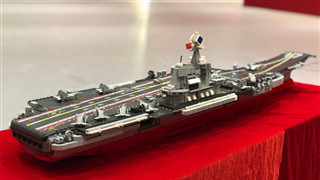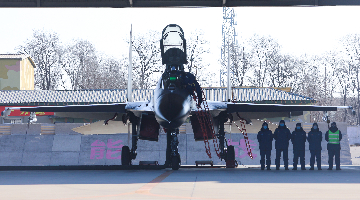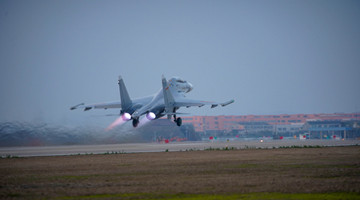
By Tian Yuewan
After three and a half years of tortuous road, Brexit finally became a reality on January 31 this year. UK’s withdrawal from the European Union (EU) will not only bring important changes to the country itself, but also have significant impacts on European defense integration.
After the development of European integration evolved from the community phase to the alliance phase, the common security and defense policy (CSDP) became one of the most important goals. The EU has established related mechanisms such as the Permanent Structured Cooperation (PESCO) and the European Defense Fund (EDF). However, the UK prefers close cooperation between the EU and North Atlantic Treaty Organization (NATO), and opposes everything else that EU does outside NATO. For European defense integration, the changes brought by Brexit are bittersweet.
The worrying aspect is that without the participation of the UK as a nuclear power, the deterrence of European collective defense will be significantly reduced. In terms of defense expenditure, the withdrawal of Britain, one of the largest defense spending countries in Europe, will increase the shares of other EU members. Prior to Brexit, the UK had planned to further increase its defense spending in the next few years and promised to achieve a target of two percent of its GDP. At the same time, the country is also among the top few in defense R&D spending in Europe. France, Germany and the UK contribute 92 percent of the EU's two billion defense R&D fund. A report by the US think tank Rand Corporation pointed out that Brexit may weaken the EU's collective defense capabilities by about a quarter.
However, Brexit is not entirely a bad thing for European defense integration. Successive British administrations have been cautious about deepening European defense integration as they just regarded it as a supplement to NATO's collective defense mechanism. The UK believes that European military security is best achieved through NATO, and European military capabilities should also be advanced within the framework of NATO. This is clearly inconsistent with the EU's goal of strengthening strategic defense autonomy. At the same time, the UK has continued to vote against the EU Security and Defense Cooperation Plan within the EU, and hindered the major initiatives and its plan to increase its budget of the European Defense Agency in recent years.
The UK has also been relatively passive at the operational level. It refused to participate in the PESCO, which is launched in 2017 and regarded as one of the union's important pushes to develop joint military and combat capabilities. So in that sense, UK's loss of decision-making power on EU defense policy after its departure may help existing member states move towards an independent European defense integration from the cooperation mechanism level.
From a shared security perspective, Brexit has limited impact on the close cooperation between UK and its European allies. In fact, European defense integration has been progressing slowly in recent years. The power to develop and implement security defense policies lies in the EU member states, not the EU. In the future, the EU will in fact need to work with the UK in the process of defense integration. French President Emmanuel Macron hoped that the UK will continue to participate in European defense integration after its departure. He proposed the European Intervention Initiative and invited all European countries, including the UK, to plan for rapid defense deployment. French Minister of Armed Forces Florence Parly also stressed the importance of maintaining a close ties with London in defense. German Defense Minister Annegret Kramp-Karrenbauer advocated the establishment of an “E3” group, involving France, Germany, and the UK, to play the "hinge" role between NATO and the EU.











